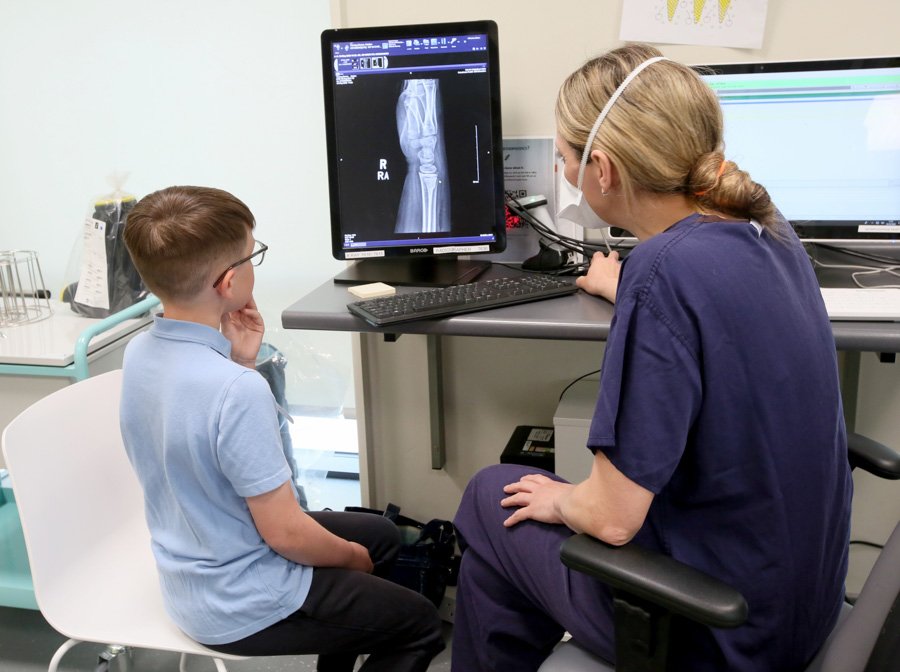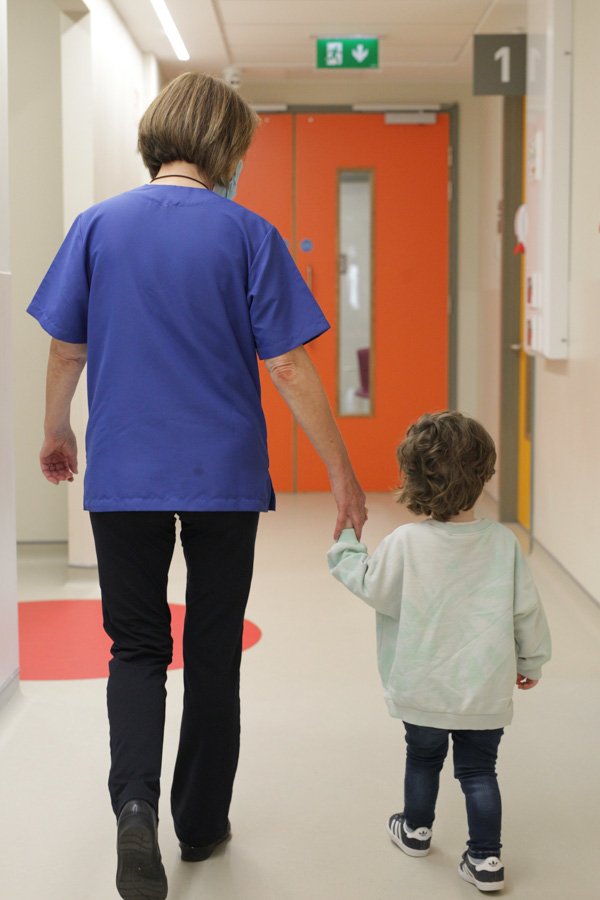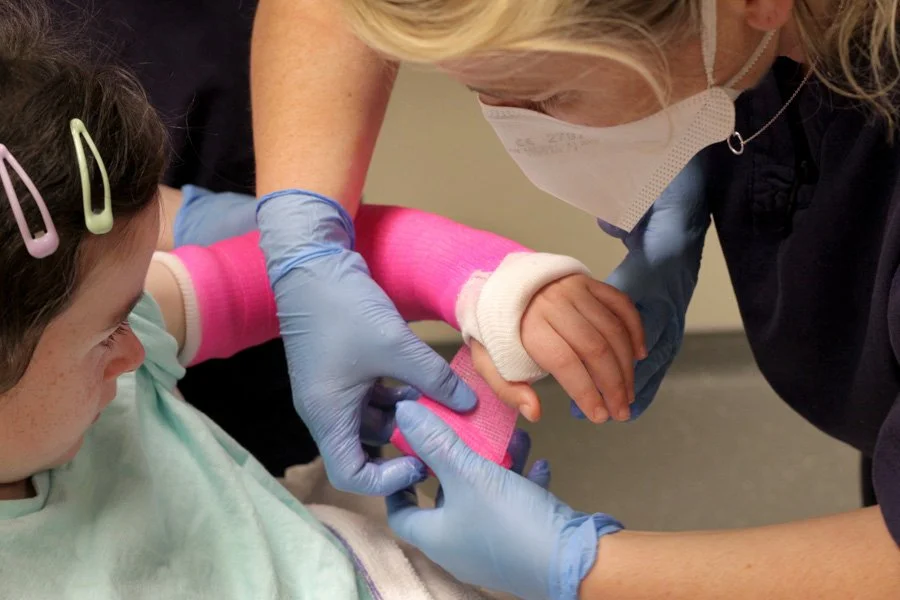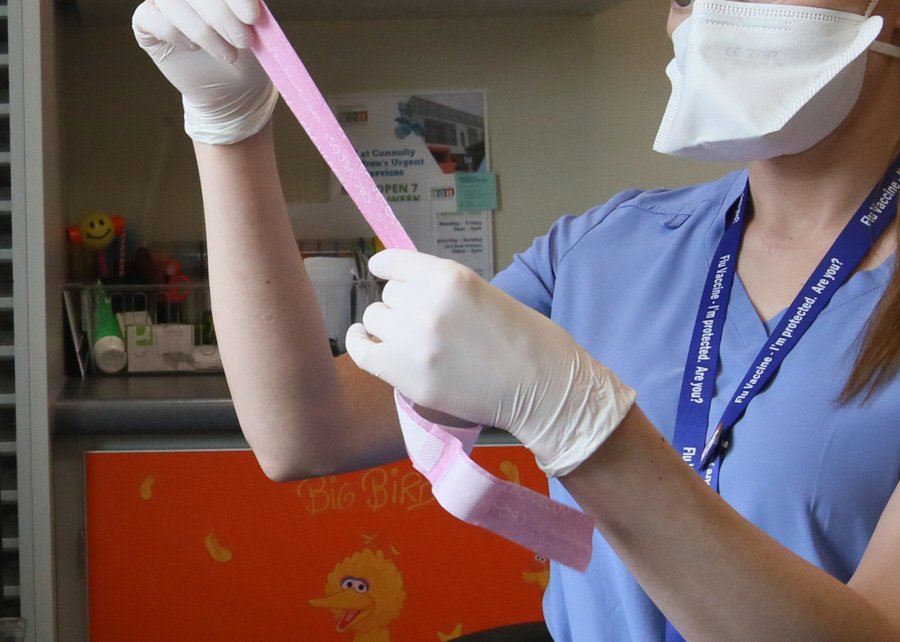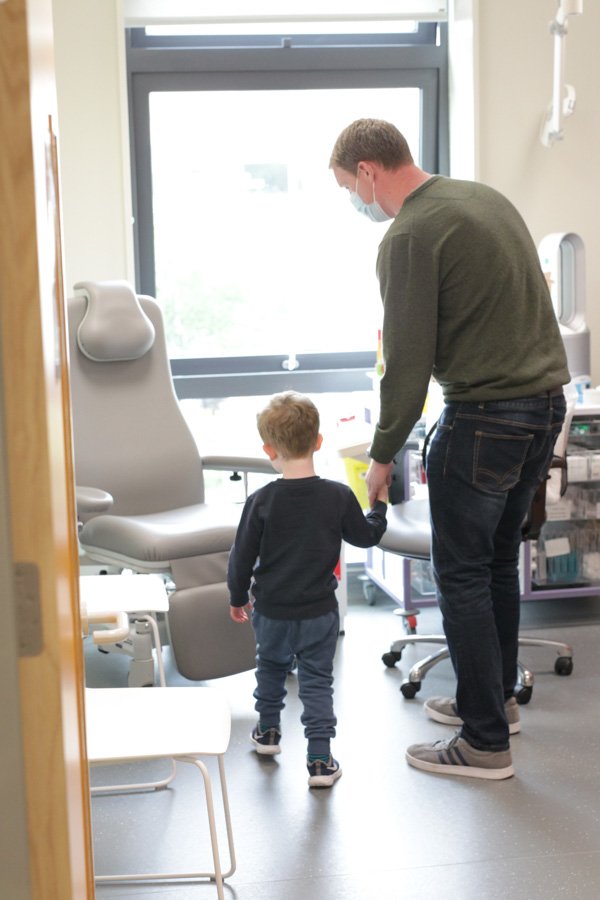Children’s Health Foundation
Supporting Sick Children
Children's Health Foundation raises vital funds to support sick children and their families in Children's Health Ireland hospitals and urgent care centres in Crumlin, Temple Street, Tallaght and Connolly
Children’s Health Foundation is the largest fundraising charity in Ireland supporting sick children. From the delivery of cutting-edge treatment and technologies to the refurbishment of critical hospital facilities, we are committed to caring for those children who are most in need. Children’s Health Foundation exist to support sick children and their families in Children’s Health Ireland hospitals and urgent care centres by funding vital life-saving equipment and essential patient and parental supports. As well as funding ground-breaking, paediatric research.
Childhood illness in all its forms is persistent, indiscriminate, and often devastating. Many of the children that pass through the doors of the Children’s Health Ireland sites every day have rare and complex conditions that are life-limiting or life-threatening and Children’s Health Foundation know all too well the impact that disease can have on a child and their family. They exist to ensure that all these children have the access to the best possible care.
Ensuring that patients have access to the very highest standards of care, world-class facilities and benefit from the most up-to-date research that will change young lives for the better, the funding provided by your support will enable Children’s Health Ireland to bring long-term impact for sick children and their families.
Where the money is going
The money raised will help to purchase a state-of-the-art piece of equipment called an endoscopic ultrasound. These ultrasounds enable medical teams to assess a variety of disease and issues affecting paediatric patients and is highly effective at identifying and monitoring cancer in the lungs, pancreas and liver.
Endoscopic ultrasound (EUS) is a minimally invasive procedure to assess diseases of the digestive (gastrointestinal) tract and other nearby organs and tissues. Endoscopic ultrasound combines the use of a thin, flexible tube (endoscope) inserted into the gastrointestinal tract and a device that uses sound waves to create images (ultrasound).
The high-frequency sound waves produce detailed images of the digestive tract and surrounding organs and tissues, including the lungs, pancreas, gall bladder, liver, and lymph nodes.
An endoscopic tube may also have a small needle to remove fluid or tissue samples (biopsy) for examination in a lab. This procedure is called EUS-guided fine-needle aspiration or EUS-guided fine-needle biopsy. Other EUS-guided procedures can be used to drain fluid from a lesion or inject a drug at a specific site.
EUS and EUS-guided procedures can be used for the following:
Assess damage to tissues due to inflammation or disease
Determine whether cancer is present or has spread to lymph nodes
Assess how much a cancerous (malignant) tumour invades tissues
Determine how advanced cancer is
Provide more-detailed information about lesions identified with other imaging technologies
Extract fluid or tissue for diagnostic testing
Drain fluids from cysts
Deliver therapies to a targeted region, such as a malignant tumour
The difference this will make to children with serious illness:
Children are not small adults. When they get sick or injured their bodies react differently to treatment. Yet, the majority of paediatric treatments used today, have only been clinically proven in adults.
Purchasing this important system will ensure patients get the essential diagnosis and treatment they need in the hospital they are attending; otherwise, they will be forced to travel, potentially overseas.
It will expedite diagnosis for children with rare diseases like liver and pancreatic tumours, using less invasive and painful testing and allow for more targeted interventions of complications of serious illnesses such as pancreatitis. It will also allow children in Ireland will have access to tailored technology for children, that is currently only available to adults.



